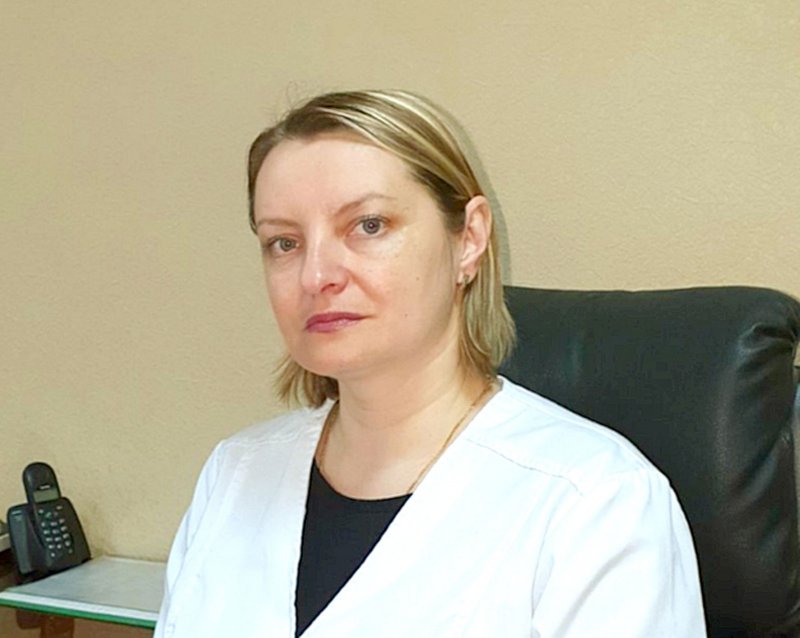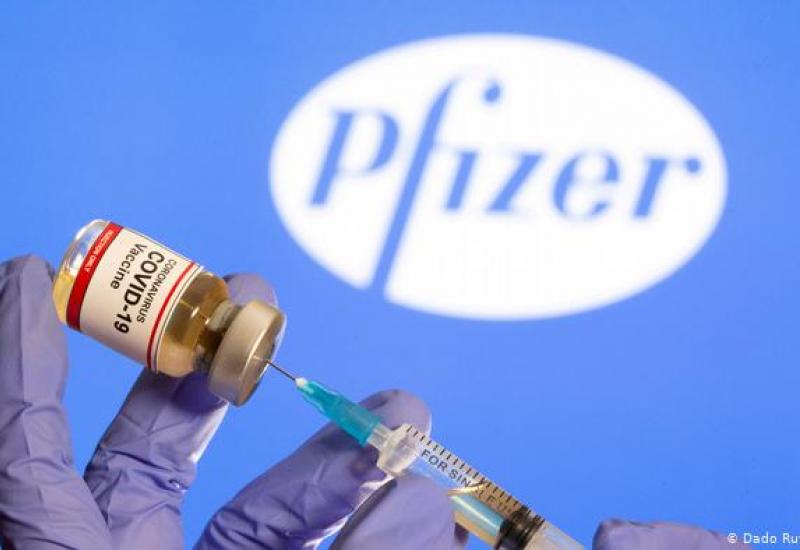The COVID-19 vaccination campaign is underway at Igor Sikorsky Kyiv Polytechnic Institute. The University teachers and staff get vaccinated with the Pfizer vaccine as educators at the Kyiv City Student Polyclinic (KCSP). The random.org service has developed the schedule of vaccinations of units and their distribution by dates. Since the start of vaccination, the number of university employees who want to get vaccinated has increased. There were about 1,800 people when we started the vaccination campaign comparing to more than 2,400 people, as of June 15. However, some people hesitate whether it is worth getting vaccinated. They fear unwanted body reactions or listen to horror stories. Other people are not keen on double vaccination. They do not feel sure that they will get the second dose of the vaccine. To clarify some questions about the vaccination and get answers to others, the Editor-in-chief of the KP newspaper Dmytro Stefanovych met the Director of the Kyiv City Student Polyclinic Iryna Sobko. We offer you a recording of this conversation.
Dmytro Stefanovych. – Let us start with refuting one myth if it is a myth. Of course, it is not about chipping – it is hard to take it seriously. However, some teachers share the opinion that a person immediately after vaccination becomes contagious to others. It is as if a person is injected with a weakened disease. Then, for a while, a person becomes a carrier of a viral threat. Is that true?

Iryna Sobko. - No, it is not. it is a myth. People are not infected. If we consider the CoronaVac vaccine from the company Sinovac Biotech it is created by traditional and well-known for many decades technologies based on the killed virus. As soon as it gets into the human body, it can not come to life. At the same time, the body produces antibodies to it.
As for AstraZeneca, the vaccine uses modern technology with attenuated adenovirus (in simple language - the cold virus) monkey. This virus is genetically modified to make it more like a coronavirus, and such a modification cannot cause disease. But it trains the immune system to recognize the virus and teaches it to fight it.
The vaccine Comirnaty designed by Pfizer and BioNTech (we often call it Pfizer), serves to vaccinate Igor Sikorsky Kyiv Polytechnic Institute staff and employees. Its production uses new technologies based on the use of nucleoside-modified matrix ribonucleic acid (mRNA). As soon as one gets vaccinated, the human body produces antibodies to the viral protein.
I mean, vaccinated people are not sick, so they do not pose any danger to anyone.
- Vaccination against coronavirus requires two doses. When filling out the form before receiving the first dose of the vaccine, everyone gets informed that the second injection should be given 21 days after the first one. But life is life, and it can happen that this day a person will not be able to come to the vaccination office, or on that day the clinic will not have the necessary vaccine, and it will be brought 2 days later, and so on. What to do then? Is it possible to increase this interval?
- The interval between the first and second injections can be increased to 28 days. In general, many experts say that it is better even than the interval between two doses was not 21 but 28 days. But at least 21 days! That is why such time limits are set - from 21 to 28 days because everyone understands that a person can not always come on the same day. Therefore, there is a time limit - one week - in which it must meet.
- The next question is about two doses. You can hear from some scientists and doctors that for a person who has become ill with COVID-19, to create a stable immunity, one dose of the drug is enough. Is it still worth two doses?
- We work following the orders of the Ministry of Health of Ukraine and the mass immunization programs approved by the Ministry. It is clearly defined: two vaccinations.
- I see. Let us discuss immunity forming: one sometimes writes that resistance to infection forms after the first dose of the vaccine. But only after the second efficiency is the projected 95%. Is it true that even after the first injection, the person gets immunity?
- The fact is that each vaccination, especially the first, affects each person individually. It is the most important thing. Some people tolerate vaccinations without feeling any changes. In others, the temperature rises, there are local changes, for instance, redness of the hand, pain at the injection site, one sometimes has a rash, allergic reactions, and so on. That is what I can answer your question: indeed, antibodies get generated and after the first vaccination. But only the second vaccination fixes this effect, creates steady immunity.
- Hence the following question - about the body's reactions to the vaccine and side effects. I know people who hesitate on vaccination because they are afraid that it may exacerbate their chronic diseases. In general, it is probably worth distinguishing between short-term and long-term reactions and side effects, right?
- Yes. And we observe people's reactions to the vaccine for fifteen to thirty minutes directly in our office. We try to protect people from anaphylactic shock and are ready to help them when they occur. Prolonged reactions are those that develop over three days. There may be, as I said, pain at the injection site, hyperthermia, fever, headache, which disappear within two or three days. We did not have any side effects. I mean, there were no diseases. Especially after the vaccination with Pfizer. We have been working with this vaccine for a long time, but there has been nothing like it.
- But there are contraindications to vaccination. For example, is it possible to vaccinate people with chronic diseases? Or allergy sufferers? And with seasonal hay fever?
- Pollinosis (Note the body's reaction to plant pollen or fungal pores, which is manifested by allergic rhinitis, tearing, etc. - ed.) is not a contraindication. But allergies to some components of the vaccine can be. Therefore, whether a person is allergic and what exactly is one of the first questions doctors ask before vaccination before permitting vaccination. It is a crucial issue because even serious diseases are not contraindications for vaccination. We even vaccinate cancer patients. Moreover, doctors recommend such vaccination for people with chronic diseases.
- Do I need to prepare for vaccination, and how exactly? Is there anything you must not do before vaccination? I mean sports, work in the sun, etc., some dietary restrictions.
- There are no specific recommendations in this regard. Just live your usual way of life. The only thing to avoid is alcohol consumption. No alcohol before vaccination and within three days after it.
- Of course, alcohol consumption, especially abuse, is a bad habit. And what about other restrictions - after vaccination? Is it possible to go in for sports, work in the garden, sunbathe in the sun - after all, summer is outside?
- As for tanning, it is not a good idea in general. We do not get any benefit from it. On the contrary, we can harm ourselves. You should not visit the pool or sauna for three days after vaccination. Live your usual way of life. There are no other restrictions. You can do sports.
- After the start of vaccination, the number of Igor Sikorsky Kyiv Polytechnic Institute staff and employees willing to be vaccinated has increased. I want to say, the corresponding lists from our units have become longer. Maybe someone else will join vaccination. Will there be enough vaccines for everyone?
- Yes, there will be enough vaccines for everyone. Based on the information we have from the Ministry of Health, there will be enough vaccines for everyone.
- Is the second dose reserved for a particular person after the first vaccination?
- Yes, of course. Everyone who is vaccinated is on the list. Everyone is in the database of the electronic Medical Information System. Moreover, even family doctors can look at the vaccination history of their patients, ie open the Medical Information System and see when its declarant was vaccinated and which vaccine is all in the system.
- Well, one more question about the organizational plan. The Igor Sikorsky Kyiv Polytechnic Institute team is numerous. And it is already known that the University vaccination will take several weeks, especially with both doses - until mid or late August. Is it possible to somehow speed up this process?
- The fact is that the KCSP vaccinates not only with the Pfizer vaccine and not only Igor Sikorsky Kyiv Polytechnic Institute. We have all three vaccines to immunize the population in Ukraine. We have mobile teams that are already re-injecting with AstraZeneca. All three vaccines need planning - the first and second vaccination. That is, we do both vaccination and revaccination. We involve the maximum possible number of people in this process. We cannot increase their number, especially since the holiday period has begun. Of course, it doesn't take much time to get the vaccine into a syringe and get vaccinated. It doesn't take much time for a doctor to interview a patient and examine him. It takes a long time to enter information into the database. Sometimes the system does not work very well. And often, it is not the Medical Information System that freezes but the central database. And until we enter information about the patient, we have no right to vaccinate. At the same time, registering into the database about those patients who do not have a declaration with a family doctor takes much more time. After all, when a person has such a declaration, it can be found much faster in the database. And when it is not there, the patient must be fully registered in it from the beginning: enter passport data, identification code, all data, information about the responsible person, and so on. The phone should receive an SMS with an input code to register the person. And sometimes you have to wait for 5-6 minutes. It all takes the most time, and the most time is spent on those people who do not have declarations.
- Do you mean, a person should come for a vaccination with a declaration?
- No, not any declaration required. If you have a family doctor with whom you have signed a declaration, the database already has the necessary information. But it also happens that a person believes that he has registered, but his doctor resigned or something else. Then, his data again have to be entered into the database.
- And finally, the question of sanitary and epidemiological restrictions after receiving two vaccinations?
- Yes, until the pandemic is overcome in the world until the country has formed a collective immunity - everyone should follow the rules set by the Ministry of Health and common sense: adhere to the mask regime indoors, public transport and crowded places, avoid large crowds, ventilate the room, wash your hands regularly and correctly (at least 30 seconds) with soap, etc.
- Thank you for your refreshing and informative explanations.

